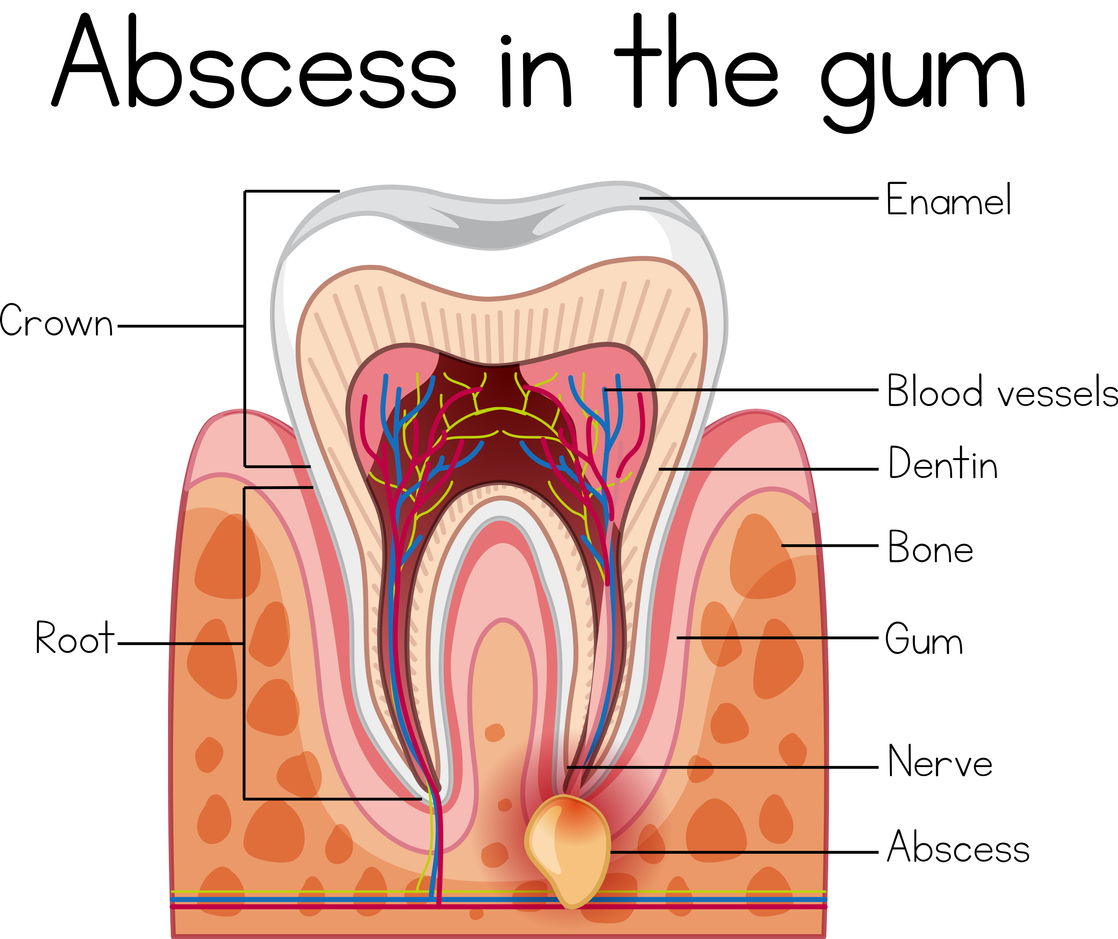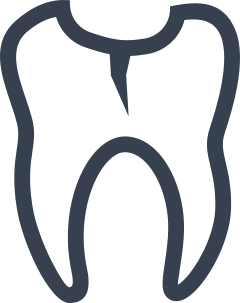We can save your tooth! 85% of dental emergencies result of pulpal or periapical disease. Root canals are a wonderful, modern way to save teeth that have been damaged by fractures or tooth decay. Our ancestors would have been so happy to know about root canals! Each tooth contains a long, thin strand of dental pulp that provides the tooth with nutrients. This pulp extends down into the tooth’s root. If the pulp becomes infected it can lead to intense pain and increased sensitivity to hot or cold temperatures. When injured, the nerves of the tooth can die and often, if a root canal is not performed, the tooth will have to be removed. During a root canal (which is performed using modern anesthetic techniques so there is no discomfort) a gap is drilled into the tooth’s crown and the pulp chamber, the diseased pulp is removed and the area is reshaped. The tooth is then sealed with a permanent crown made of gold, porcelain, or zirconium. Root canal therapy allows us to remove the infection, stop the pain, and prevent irreversible bone loss of the jaw.

Abscessed Tooth
A dental abscess is a localized collection of pus associated with a tooth. The infection can result from an untreated cavity, injury, or old dental work. If not evaluated and treated accordingly, this condition can become very serious and in some cases, may spread to other parts of the body. If the airway is obstructed due to swelling, this condition can lead to death. It is imperative that if you believe you may have a dental abscess that you come in promptly for us to adequately evaluate and treat the condition.

Tooth Extraction
As previously mentioned, if tooth decay extends to the pulp, infection may ensue. If the root canal therapy is ineffective, tooth extraction may be the best option to prevent unnecessary jaw bone loss or gum disease.

Toothache or Swollen Mouth/Jaw
Toothaches and swollen jaws can be the result of several different things. Food dislodged into the gums, a cavity may be approaching the nerve tissue of the tooth, the tooth or jaw could have an infection or abscess, a crack or fracture on the tooth or jaw, gum disease, injury, wisdom teeth coming in improperly, etc.

Broken/Chipped Teeth or Knocked-Out Tooth
If a tooth is knocked-out or broken/chipped, collect the tooth and/or all of the pieces. If there is dirt or foreign material on the tooth fragment(s), gently rinse the teeth with lukewarm water for no more than 10 seconds. Be careful not to remove any attached tissues to preserve needed cells for recovery. If possible, store the tooth/fragments immediately in the mouth, or try to find Hank’s buffered saline, isotonic saline, or Pasteurized Cow’s milk (probably the easiest storage solution to find). Give us a call immediately so we can potentially save your tooth! It is important to get dental care within an hour for the best prognosis of the tooth.
Lost/Broken Fillings or Crowns
When a filling or crown is lost or broken, this exposes the vulnerable tooth structure underneath to potential infection. The tooth may become sensitive and painful to temperature and pressure. Come in and see us promptly to repair the broken/lost filling or crown. If the crown is retrievable, please bring it with you so that we may re-cement it back on for you.




